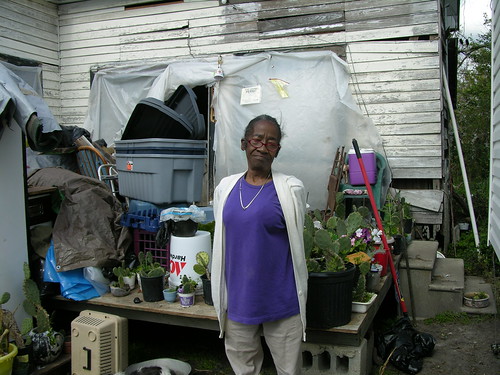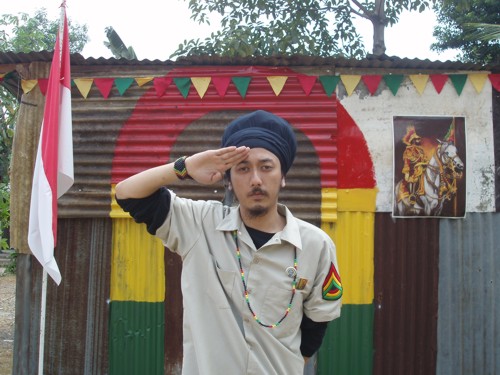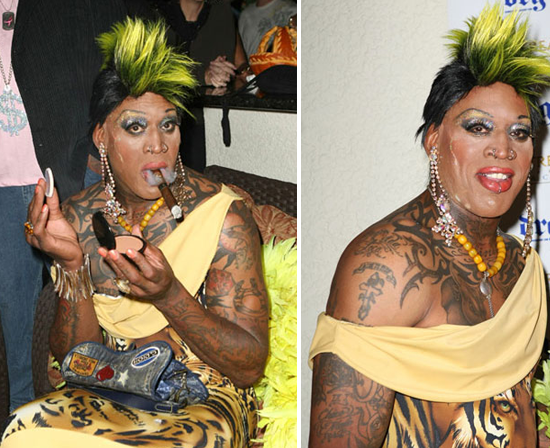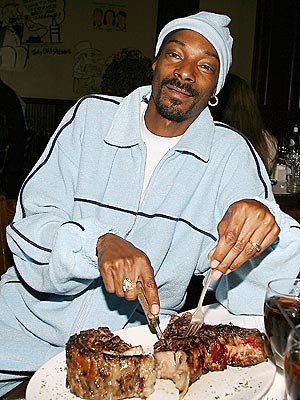What Do You Want To Do on Holiday ?
When we saw this we thought wow it's vacation time, and folks would surely like to know
where to go and where not to go. this year we are NOT Suggesting Your Take your Chances in Trinidad because Dem a Ramp Up Bad Bad Baddddd.
Read This Stuff and decide where you want to spend your holiday
 Trinidad and Tobago crime rate tops Jamaica's
Trinidad and Tobago crime rate tops Jamaica's
PORT-OF-SPAIN - As the country awaits the unveiling of the newest crime plan, criminals have gone about their business murdering and robbing citizens, more than they did last year.

First-quarter crime figures have shown an increase in murders and robberies as compared with the same period last year.
Murders have gone up by over a fifth, 21.69 per cent, and 441 more people have been robbed this year, an increase of 44.95 per cent as compared with the first quarter of 2008.
And compared with our Caribbean neighbour to the north, Jamaica, a country that has been the benchmark for regional violence, Trinidad and Tobago is in a worse-off position.
In Jamaica, there was a reduction in murders of almost six per cent for the first quarter of 2009, and a drop in shootings.
There was an increase in robberies, though, of 35.55 per cent on that island. However, this is no comfort as more people have been robbed in Trinidad and Tobago this year, 1 422 as compared to 713 in Jamaica.
On April 21, Prime Minister Patrick Manning announced that a new crime plan would be unveiled in three weeks' time.
The three-week mark has gone and National Security Minister Martin Joseph said recently that it was still being reviewed by the National Security Council.
Urban violence, fuelled by gang rivalry, remains the biggest source of carnage with the Port-of-Spain district, accounting for close to a quarter of all the murders committed for the first quarter of 2009.
The Port-of-Spain Police Division, which is geographically less than one-tenth the size of Trinidad and Tobago, has recorded 32 of the 129 murders for the period, 24.80 per cent.
The high number is the result of gang fights in Laventille, East Dry River and parts of Belmont, police say. The East-West Corridor continues to be the most violent place on the islands, accounting for over three-quarter of the country's murders.
The rest of Trinidad and Tobago, which makes up more than three-quarter of the islands' land mass, has recorded only 32 of the 129 murders up to March 31.
A total of 97 murders were committed between Carenage and Arima, 75.19 per cent, with the Port-of-Spain Division having the most homicides, 32, followed by the Northern Division (Arima to St Joseph) 25, Western Division (Carenage to St James), 20, and North Eastern Division (Morvant to San Juan), 20. (Trinidad Express)
Gangsters ‘dial’ out of crime
By NALINEE SEELAL Friday, October 24 2008
Are you a gangster? Dial 625-4932 or 623-8440 to get out of your life of crime.
That’s the appeal of Acting Commissioner of Police James Philbert who, yesterday, announced that two hotlines have been set up for members of gangs to call if they want to surrender and get help to turn around their lives.
The two numbers are the direct lines to the offices of Acting Deputy Police Commissioner Gilbert Reyes and Assistant Police Commissioner, Crime, Raymond Craig who are based at the Police Administration Building, corner of Sackville and Edward Streets, Port-of-Spain. Philbert said he has been overwhelmed by requests from men and women who have left gangs and want to live law-abiding lives.
Philbert, during a news conference at the Police Administration Building, said the police must give their full support to gang members who want to get out of crime.
Twenty men and women, who with the help of evangelical pastors had left gangs, went with their pastors to a meeting with Philbert at his office on Wednesday. Reyes and Acting Deputy Police Commissioner Maurice Piggott also attended the meeting, which was the second time Philbert had met with the former gang members. Last Sunday, they hired a maxi taxi and met with Philbert at an undisclosed location in south Trinidad.
“They wanted to get out because they got fed up. They wish to live a little longer, and to enjoy life a little longer, and they suddenly realise there is a God,” he said.
The former gang members told the top lawmen they want to help the police to bring an end to gang violence.
“They have said certain things to us and gave us an insight into what we are dealing with.
“We are willing and able to assist any gang member who is willing to change,” said Philbert.
Talking tough, Philbert declared the goal of the police was to stop gang-related crimes.
“We strongly deplore it. We will try to reduce it and eradicate it.”
Asked if the police would help those who may have matters in court, Philbert made it clear the law must take its course.

The holiday-brochure chic of its resorts belies the unremittingly harsh underbelly of the real Jamaica. Here, the eminence of drugs and guns have created a society in which 'respect' has replaced civic values – and where a lack of it results in a trip to the morgue. Ian Thomson ventures into the heart of the country to ask, what went wrong?
By Ian Thomson - Sunday May 10, 2009

PETER DEAN RICKARDS
Guns, ganja and games: Peter Dean Rickards' ongoing photography project in Jamaica captures every side of the country, from its crime scenes to its church-goers and its obsession with sports
Whatever happened to Jamaica – for so many years Britain's pride and joy? Since independence in the early 1960s, the drug barons have taken over, hopes of social equality have faded and there's a pall of violence. Tourists rarely see anything of the twisted side of island life, as they hardly ever venture outside the stockaded beach resorts and private beaches advertised as "paradise". Tourism contributes an estimated $1bn a year to Jamaica's economy and has become a part of Jamaican life, with hordes of vendors, hustlers and "guides" ready to hound the unwitting visitor. Yet this "paradise" of holiday brochures is just as often derided as a criminal backwater.
With an annual murder rate of around 1,500, Jamaica is one of the world's most violent countries, on a par with South Africa and Colombia. A recent report by Amnesty International, "Let Them Kill Each Other" (April 2008), depicted a nation in tragic disorder. Stories of child labour, domestic violence and murder clog the national press. Kingston, the capital, remains locked in cycles of political and gangland violence; to live there today calls for special qualities of endurance.
In downtown Kingston, amid the shacks of Trench Town, the inhabitants are sullen and numbed. The neighbourhood was developed in the 1940s by the colonial administration to accommodate West Indian troops returning home. It has decayed into a violent, disaffected ghetto, whose tenement yards gave rise to the term "Yardie", shorthand for Jamaican gangland criminal. In Trench Town, gang members carry ever more lethal weapons to "rank" themselves higher in the narcotics trade. It might have been dangerous for me to visit on my own, so I was accompanied by a local pastor, Bobby Wilmot, whose job is to broker truces between gang factions.
We drove across scrubland, the morning hot and shadowless, while dogs slunk amid a roadside litter of plastic bottles and old KFC boxes. At an abandoned remand centre with collapsed razor-wire fencing, the pastor said: "I've seen quite a few shoot-outs here in my time, and it looks like the cowboy shows are still running." A crowd of women had emerged by a roadblock of burning tyres. One of them, flushed with rage, shouted out: "Pastor B!" I quickly put away my notebook (it gave me a provocatively official air), while Pastor Bobby slowed down and addressed the woman through the car window. "Wha gwaan?" We soon found out.
A youth from an adjacent turf had been executed – summarily – that morning by police; now another had been killed. By the police? No, a rival gang. The roadblock was to prevent retaliatory drive-by shootings. "Lord 'ave mercy," said Pastor Bobby. Violence is now so deeply ingrained in the local culture of "respect" that to be in charge, you have to "batter" people. As in parts of London, youths are caught in "district-code" warfare, where turfs are respected on pain of death.
In some respects, 21st-century Jamaica, with its mass poverty, social resentments and skewed distribution of wealth, is like pre-Revolution France, reckoned Pastor Bobby. Only, in Jamaica, there is no sign of a revolutionary movement, no glimmer even of organised social protest. "So the wealthy will have nothing to fear," he said. "The poor are too disorganised, too ill-educated, for social revolution." There is, however, something far worse: thousands of empty, wasted lives, and endemic violence, in which God is a US-import Glock. '
In the half-century since independence in 1962, hopes for a fairer, better Jamaica have not been met. Instead, a system of "clientism" has evolved, in which patron politicians provide their client supporters with jobs, protection and a flow of money, as well as narcotics and firearms in return for their loyalty. Incredibly, an estimated 55 per cent of Jamaica's goods are imported from the US; these include not only sugar, cars and electrical goods, but guns. America's liberal gun laws have fatally eased the transfer of firearms into Jamaica. (Conversely, many Caribbean drug kingpins in Brooklyn – "Little Jamaica" – were apprenticed in the Kingston ghetto.)
Carolyn Gomes, director of the human-rights group Jamaicans for Justice, believes the violent American culture of "respect" has flourished in Jamaica in the absence of civic values, encouraging teenagers to pursue power and money for their own sake. "When your life's so degraded," she said, "you need people to respect you." She added: "A youth with a gun is a youth to be feared and looked up to – murder is his badge of honour." Increasingly, Jamaica's justice system is undermined by violence and threats of violence. Pathologists are often too frightened to serve as observers at postmortems. They may be seen as witnesses or, worse, informers and suffer violence themselves.
The postmortem room at the Spanish Town Hospital, outside Kingston, typically has no refrigeration. So what might serve as evidence disintegrates fast. Bodies are brought in by the commercial funeral homes in the early morning, and piled up in corners. The pathologists rarely get to them before midday, if at all.
Jamaica is now a quasi-American outpost in the Caribbean, yet its legal system is clogged with British Empire-era red tape. The island's anti-sodomy laws, which carry a jail sentence of up to 10 years, derive from the English Act of 1861, and show to what a dismal extent Jamaica has absorbed values from its imperial masters. Similarly, the death penalty is still on the Jamaican statute books, though most capital punishments are overturned in London by the Privy Council, Jamaica's Court of Final Appeal. Thus an ancient British institution comprised of mostly white Law Lords has become the unlikely defender of human rights in Jamaica. A majority of Jamaicans – not just conservative, pro-monarchy ones – see hanging as the only effective deterrent against criminality: murderers must face death.
Yet the British Law Lords, through the grace of Queen Elizabeth II, use their power to prevent executions. Such paradoxes are part of the Jamaican confusion: Victorian standards that have long disappeared in Britain linger on in Jamaica – to Jamaica's detriment.
As elsewhere in the West Indies, Jamaica is a land with a continuous memory of slavery and slavish abasement. The deeper I ventured into the island, the more it seemed an insidious "shadism" has ensured that a minority of white (or near-white: what Jamaicans call "local white") inhabitants still control the plantations and other industries. Jamaica's oldest sugar estate, Worthy Park, was founded in 1670, and is still in operation. One day I went there for lunch. A sound of cocktail-making – a clinking of crushed ice against glass – greeted my arrival as bow-tied waiters hurried to whisk away flies from our plates. The elite of Jamaica's sugar industry was enjoying fine French wine and chilled soursop juice. They ate well – steak, lobster mayonnaise – and the food was served with a plantation-bred obsequiousness. Many of the guests turned out to be related; all were white.
For more than three centuries, Jamaica had been Britain's most profitable sugar bowl, a prize and inhumane possession. Worthy Park's slave-grown sugar, destined for the docks and refineries of Liverpool and Bristol, used to be king. No longer: sugar is a dying industry throughout the Caribbean, and Worthy Park is waiting on a government promise of money, otherwise it will not survive. The only time Jamaica prospered economically was during the sugar boom of slavery in the 18th century.
Nevertheless, Jamaicans had found a sense of hope in the 1970s when a leftist (and outwardly anti-American) government sought to instil self-respect in the black majority and rid them of the servility ingrained by slavery. Social reforms were implemented but, 30 years on, the island's class and racial divides are still in place. "Motty" Perkins, a controversial Kingston radio journalist, reckons the attitude to power in Jamaica remains that of the plantation system, where every little Trench Town Napoleon wants to be an overseer with a team of servants. "Man, I tell you, the Jamaicans who live in the big houses today – black, brown, yellow, white – they despise those niggers down there, the Trench Town poor." Imperial Britain did some terrible things in Jamaica, Perkins agreed, "but whoever said we have a fair society now?" Politicians exploit the poor for their own purposes, in a pattern stretching back through the 300 years of British slavery.
Jamaica's very social order betrays its slaving past. Near Montego Bay, I met an elderly sugar planter and land-owner known to the locals as "Squire Taylor". His Georgian residence was shuttered and silent in the afternoon heat; the door was opened by a black man in dungarees. "Master Taylor's asleep," he announced, "but he soon come." Taylor emerged from his slumbers, a thin man bent almost double with age, yet still every inch the "buckra", or white sugar boss. He gestured for me to sit down in a room whose scant furniture was eaten, visibly, by termites. Taylor's daughter had come out the other day from England with a removal van, he explained, and, staking a claim to the family heirlooms, "cleared out everything". Taylor added (apparently by way of apology) that she lived in Tunbridge Wells.
The Taylors had occupied this merchant's house since 1773 and, no doubt, like many of Jamaica's long-settled English, they were impervious to, and contemptuous of, African slave culture. Taylor began to rail against the native propensity (as he construed it) for idleness and skylarking. His family slaves had been "awfully lazy"; they rarely did an honest day's work. Honest? Jamaican slavery, with its arsenal of whips and chains, was, by contrast, brute mercantile greed. Upstairs, the rooms had collapsed; a mattress lay along one wall, next to a bucket for collecting rain. The house, like Jamaica's sugar industry, was on shaky foundations.
More so even than tourism, narcotics have transformed Jamaica. Kingston remains vital to the trans-shipment of cocaine from Latin America to the markets in North America and – the most profitable of all markets – Britain. Cocaine fetches three times as much in Britain as in other European countries. More than 300 Jamaican women are currently serving sentences in British prisons for drug smuggling, many of them single mothers. The drugs come in by air as well as by ship. "Mules" board planes at Kingston and Montego Bay, having ingested up to 100 condoms or (more dependably sturdy) surgical glove fingers filled with cocaine.
I spent an afternoon at Kingston's container terminal, Port Bustamante, watching vessels unload. Stockpiles of containers – P&O, Hamburg Süd – were stacked like giant Lego blocks along the wharves, among them "reefers" (refrigerated containers) crammed with frozen fish fingers and TV dinners. Omar Williams, chief of the port's anti-narcotic security, was carrying a pair of binoculars and a licensed firearm. He was on the look-out, he explained, for "high-risk" containers from Colombia, Venezuela and Nicaragua. X-ray equipment installed in 2006 by US security experts works only intermittently because "certain employees keep pulling the plug" on the cargo-scanning equipment; Jamaica's "guns for drugs" trade with Haiti is thought to be facilitated in this way.
"Shouldn't Jamaica tighten its border controls?" I asked Williams. "You could say that. But it's not just Jamaica. American guns are dropping into Kingston like mangoes off a tree." He answered my next question – about where exactly the guns come from – with a slight weariness. "We really don't know. Some say Haiti – as payment for drugs. Others say the Balkans. Maybe Manchester. Maybe Liverpool. Maybe Northern Ireland." Like any other globalised economy, in other words, the guns come from all over the world. They are cheap, and getting cheaper; and to the new breed of Jamaican criminal who uses them, so is human life.
On my last day, I went to Watercourse, a village so insignificant it fails to appear on any map. Even the name is misleading, as there are no watercourses in the area and, as far as anyone knows, there never have been. Thelma Smith, a Jamaican living in Brixton, south London, had urged me to visit. Thelma was born in Watercourse in 1923 and had relatives there; her childhood friend Benita Hailey was among them.
"Thelma sent you?" asked Miss B (Hailey's local name). I said yes, and she pointed me to a chair on the porch. "Sit down and relax yourself." A neighbour pegging out the washing looked at me curiously, while children's voices were raised in playful chatter somewhere. Watercourse was a hillside community of perhaps 800 inhabitants, situated near Kingston in the heart of orange-grove country.
"Yes, up here is country," Miss B said, pouring me a glass of coconut water, "and we country people is a good people who care for each other." The air, cool with a smell of juniper and orange, was a tonic to the fug of traffic-polluted Kingston. The world that Miss B had known as a girl, however, was falling around her; Kingston represented a confusion beyond the reach of reason, a creation of the devil. What used to be considered a crime there was now judged a non-crime – even murder. "But we're living in Jamaica, my dear, and we have to stay here now. Yes, we have to live," and I admired her for the attitude. How could you live in a country in a state of constant preparedness for the worst?
With a sigh, Miss B got up and led me by the arm to a shaded plot of earth where, under an orange tree, the gravestones of Thelma Smith's parents stood alone in the fading light. She reached up to the tree and pulled down one, two, then six oranges for me. "When you get home to Brixton," she said, dropping the fruit into my bag, "tell Thelma that Miss B give you some oranges – and kiss up your children for me."
That moment in Watercourse, with the sun descending over a secluded cemetery, and the green-lighted fireflies which had begun to dance over the graves of Mr and Mrs Smith, defined for me the survival of an older Jamaica. The island is beautiful; yet the Jamaican people, with their gift for humour and generosity, their creativity (and fabled aggression) are stuck in a post-colonial malaise. Independence arrived late – 14 years after India's – and by the time it came in 1962, the enthusiasm for change had been tempered by years of colonial prevarication. "Now of course Jamaica's gone to the American camp," Michael Foot, the Labour politician, told me in 2007. "And it's partly our fault – we've abandoned Jamaica." Having shaped Jamaica's past for ill, Britain had not helped to shape its future for good.
Yet, in the present uncertainty and emptiness, surely there is some possibility of hope, maybe even of a new beginning? Jamaica, a nation built on violence, remains a corrupted Eden haunted by the legacy of imperialism. The many wonderful things about the island – its extraordinary music-making, the physical beauty, its athletic prowess (six gold medals at the Beijing Olympics, including, famously, Usain Bolt's) – are shadowed now by crime and political corruption. Hope has not died, yet I was in no hurry to go back.
'The Dead Yard: Tales of Modern Jamaica', by Ian Thomson, is published by Faber at £14.99





























